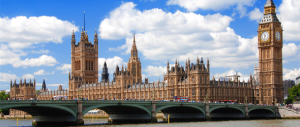
The rise in the National Living Wage has huge implications for small firms who, from April 2016 will see a rise to £9 per hour from the current rate of £7.20. Small firms or businesses employing a significant number of staff on the minimum wage are likely to feel this change most keenly, although there are some new measures from the Government to reduce the impact on the most vulnerable businesses.
The announcement that corporation tax was to be cut to 17% by 2020 was good news for the millions of small and medium sized businesses making a reasonable profit.
Business Rates
The chancellor has announced the creation of a business rates roadmap to create a ‘level playing field for businesses’ There will be a new £15,000 threshold for small business rate relief, which is more than double the previous level of £6,000. We also see an increase in the higher rate from £18,000 to £51,000 with the chancellor stating that the changes will mean that 600,000 small firms will pay no business rates at all.
Changes to Sunday trading
Local councils are to be given control over Sunday trading hours, which could mean that many big retailers will stay open later. The Federation of Small Businesses has warned that small firms could be adversely affected, as bigger companies soak up a greater share of consumer spend on the weekends.
People in employment
The Chancellor announced a 50pc increase to the national insurance employment allowance from £2,000 to £3,000, which will help small business owners to reduce their wage bill and offset the rise in the National Living Wage. The reduction to corporation tax could also help ease the cost pressure of wage increases but much depends on how many low-paid employees a business has and its level of profitability.
Directors of limited companies who are the only employee were also dealt a blow. They will no longer benefit from the Employment Allowance and there are no new incentives or support for entrepreneurs launching a solo start-up business.
But good news for the self employed as the chancellor abolishes class 2 national insurance contributions from April 2018 and raising the threshold for paying income tax to 11,500 by 2017. The threshold for paying the higher rate of tax is also to be raised from £43,000 to £45,000 in the 2017/18 tax year.
New enterprise zones
The Chancellor also announced the creation of new enterprise zones - areas where small firms pay reduced taxes and receive business support - to help create more start-ups and stimulate growth in the small business sector.
Small firms in the so-called Northern Powerhouse, which comprises the major cities of Liverpool, Manchester, Leeds and Sheffield, are most likely to benefit from new zones, and the Government has invited smaller cities in these areas to submit their proposals.
The Government claims that the existing Enterprise Zones have supported the creation of over 15,000 jobs throughout England.
The UK's major lenders will soon be required to share the financial information that they keep on small business to give these companies the best chance of securing loans.
Banks
The Government plans to force the banks to share their SME credit information with other lenders and to offer to share the details of SMEs rejected for a loan with online platforms that can match them to alternative finance providers.
The British Business Bank has also been tasked with "increasing and diversifying" the supply of finance available to SMEs.
Dividends
From April 2016, the Government will remove the Dividend Tax Credit and replace it with a new tax-free Dividend Allowance of £5,000 a year for all taxpayers.
Stamp Duty
From midnight last night there will be no commercial stamp duty on purchases below £150,000. 2% on £150000 - £250000 and a maximum of 5% on anything above this amount. The treasury states that 90% of businesses will pay the same or less following this change.
- - - - - - - - - - - - - - - - - - - - - - - - - - - - - - - - - - - - - - - - - - - - - - - - - - - - - - - - - - - - - - - - - - - - - - - - - - - - - - - - - - - - - - - - - - - -
We want you to have your say ...
What do you think about the 2016 Budget? Will this affect you or your business?
What would you have liked to have seen in this year's Budget?


